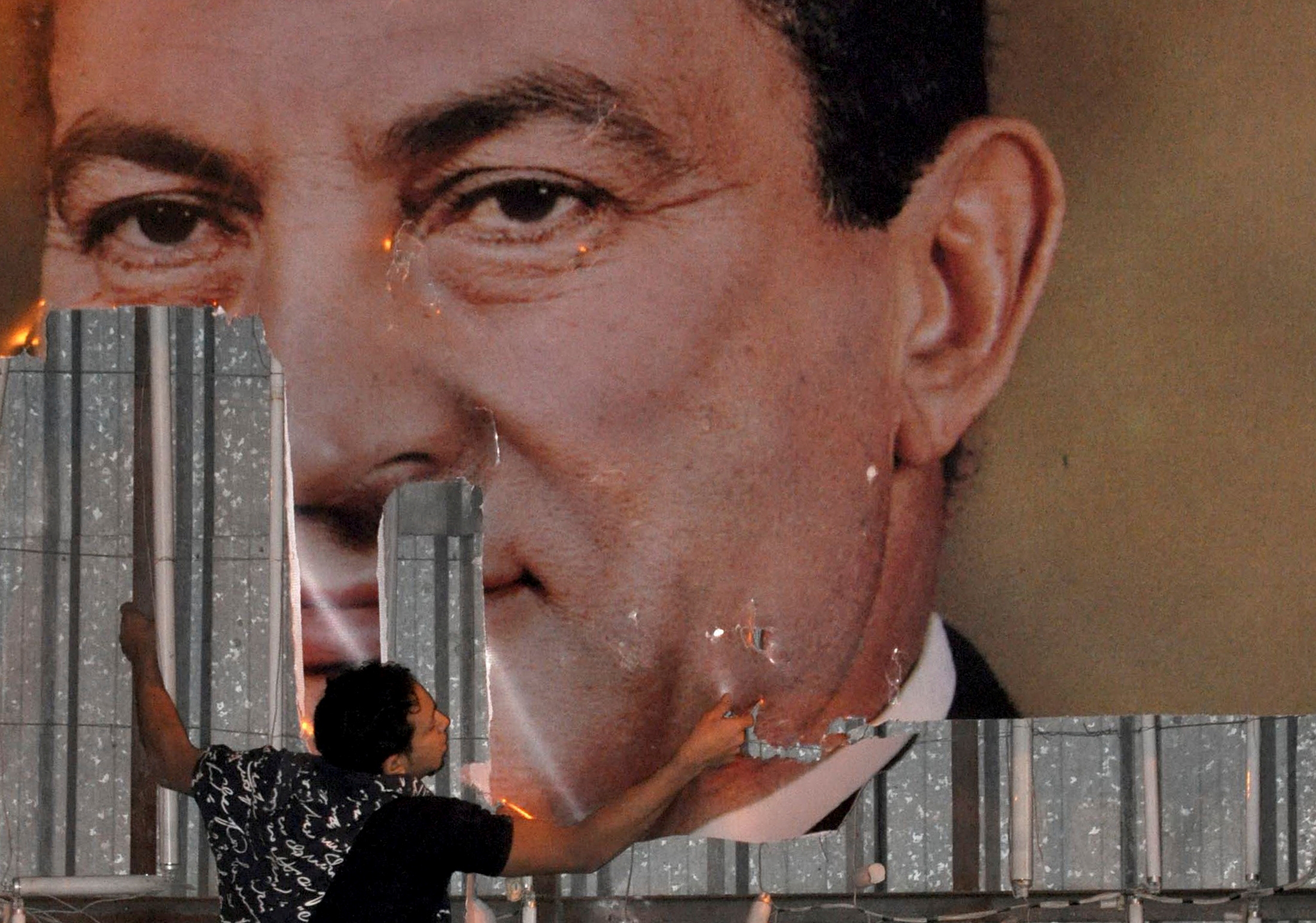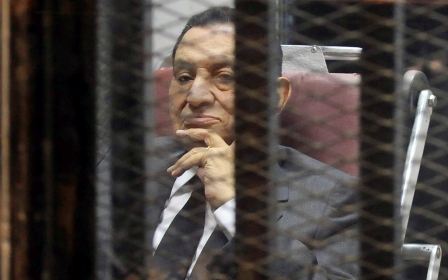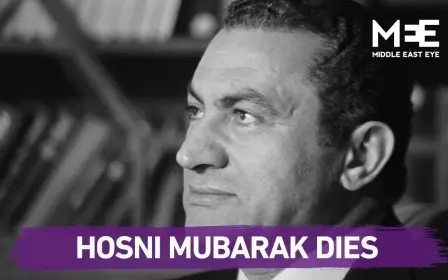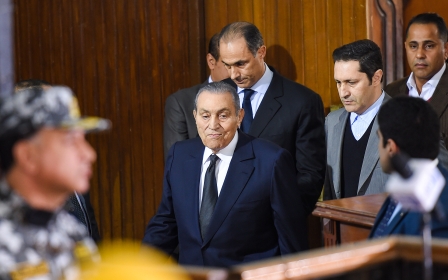Arabic press review: UAE urged Egypt's Sisi to hold Mubarak funeral

UAE put pressure on Sisi to hold military funeral for Mubarak
A phone call from the United Arab Emirates (UAE) to Egypt’s President Abdel Fattah el-Sisi convinced him to hold a military funeral for late president Hosni Mubarak who died on Tuesday, an Arabic newspaper has claimed.
According to “well-informed” Egyptian government sources that spoke to the London-based newspaper Al-Araby Al-Jadeed, Sisi was reluctant to hold a military funeral for Mubarak, but an Emirati official insisted he should organise it.
The government source, who asked not to reveal his name or position, said that Sisi received other calls from kings and princes of Arab countries, most notably the Gulf, confirming the attendance of prominent figures of these countries at the funeral, which forced the Egyptian president to confirm his own attendance.
Mubarak's first official obituary came from the Egyptian presidency, but without declaring a state of mourning.
New MEE newsletter: Jerusalem Dispatch
Sign up to get the latest insights and analysis on Israel-Palestine, alongside Turkey Unpacked and other MEE newsletters
"The presidency of the republic mourns with great grief the former president of the republic, Mr Hosni Mubarak, for what he presented to his homeland as one of the leaders and heroes of the glorious October War, when he led the Air Force during the war that restored dignity and pride to the Arab nation," said the presidency in a brief statement published on its spokesman’s official Facebook page.
Two hours after posting the presidential obituary, the presidency issued a new statement announcing a three-day state of mourning.
The announcement of the general mourning in Egypt came after the UAE announced that flags would be lowered for one day in all ministries and government institutions inside the country, as well as embassies and foreign diplomatic missions.
Mubarak recovered from rare cancer before death
Mubarak’s oncologist Dr Yasser Abdel-Qader has revealed a number of illnesses the autocrat suffered from before his death, including cancer.
In statements to the Egyptian medical website el-Consolto, Qader, a professor of oncology at the Kasr Al-Aini Faculty of Medicine, said that the late president suffered from duodenal cancer, a rare type of cancer that forms in the first part of the small intestine.
Qader, however, said that Mubarak completely recovered after the tumour was removed.
Qader added that the former president was also suffering from roughness in the knees, which led to weakness in one of his legs, affecting his ability to walk.
The doctor said that Mubarak had atrial fibrillation, an abnormal heart rhythm characterised by rapid and irregular beating of the heart. This heart condition carries the risk of heart failure or stroke.
The Egyptian Masrawy website cited a medical report issued after Mubarak’s death, showing that the cause of the death was atrial fibrillation and chronic kidney failure.
Editorial: Mubarak is gone, but military rule continues
It is ironic that former president Hosni Mubarak, who ruled Egypt relying on oppression and corruption, was found innocent in the majority of the lawsuits filed against him, and a military funeral would be organised for him, Al-Quds Al-Arabi newspaper said in an editorial.
"The tyranny of Sisi’s regime, its corruption and the oppression of its security apparatus have spread in many fields, and in less than seven years, exceeding all three decades of the tyranny of Mubarak’s regime," the editorial said.
The newspaper said that Mubarak's ousting does not conclude the era of the military's influence in the Arab world, which often brings about "corrupt authoritarian dictatorships, and adopting political, social and economic programmes that impoverish societies".
The London-based Al-Quds Al-Arabi concluded by saying that "the ousting of Mubarak is today limited to his absence from a long legacy of military ruling, while the model is still continuing and developing in a more fierce and far-reaching way in tyranny, corruption and dependency".
Mubarak’s death ‘will not change anything in Egypt’
A number of Egyptian politicians and academics said they do not believe that the death of the ousted president Hosni Mubarak will change Egypt's political scene, reported Arabi21 website.
A number of Egyptian analysts considered that "Mubarak's death may be advantageous for Sisi’s regime, and an end to the ambitions of Mubarak’s sons Alaa and Gamal," the report said.
"I do not think that Mubarak's death will change anything on the political scene in Egypt, as he has mainly not been an effective part of it particularly since the coup in 2013," Egyptian academic Samir el-Wassimi said.
Wassimi, who is a former adviser to the Egyptian minister of investment, added that while "Sisi’s regime differs from Mubarak" in some internal compositions, yet it stems from the same authoritarian military school."
"I do not expect that Mubarak's death will change anything on the current scene," echoed former Egyptian MP Mohy Issa, adding that Sisi's establishment is stable and holds tight contol over all state affairs.
Middle East Eye delivers independent and unrivalled coverage and analysis of the Middle East, North Africa and beyond. To learn more about republishing this content and the associated fees, please fill out this form. More about MEE can be found here.




